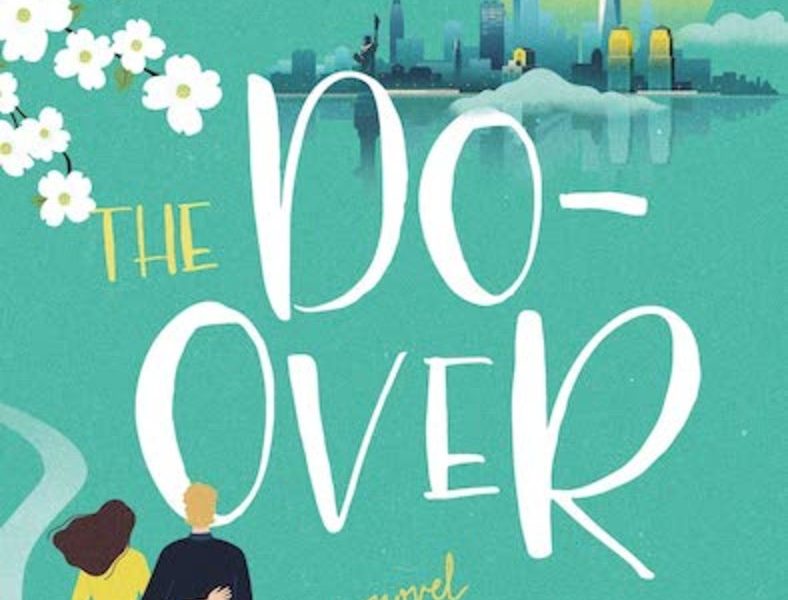3 Tips on How to Spark Romance in a Character Who Is Content With Being Single
In the 1998 Nora Ephron romantic comedy classic You’ve Got Mail, Joe Fox (played by Tom Hanks in the heyday of a cinematic era I like to call “this is Tom Hanks’s world and we’re just living in it”) is in the throes of a big-box retailer vs. independent bookseller battle with Meg Ryan’s Kathleen Kelly when his words are taken wildly out of context on the local news. “I sell cheap books. I do. So sue me.” Despite Joe’s insistence that the rest of his comments were “eloquent” and if reported in full would have reflected positively on his business, from that moment on he is in damage control mode as he strives to overcome a stigma.
(How To Write About Love While the World Is Falling Apart)
As a romance author in 2022, there are times when I feel just the tiniest smidge of Joe Fox’s pain. For me the stigma centers around happily-ever-afters and a long perpetuated rom-com belief that women will drop everything for a chance to fall in love and settle down.
Culture has shifted dramatically since Ilsa told Rick in Casablanca that he would have to do the thinking for both of them. Since My Fair Lady’s Eliza Dolittle abandoned the new independence she had worked so hard to attain in exchange for once again fetching Henry Higgins his slippers. And don’t even get me started on how much our expectations have changed since we celebrated Sandy’s complete intellectual, physical, and emotional 180 in pursuit of Danny Zuko’s affection in Grease. Those character arcs no longer ring true with our modern-day sensibilities, but that doesn’t change the fact that I want—no…I need—love to win out. I want to get caught up in the romance. And I refuse to live in a world in which Maria waves goodbye to Captain von Trapp and the children, throws on the dress the poor didn’t want one last time, and finally takes her vows to become a full-fledged nun.
IndieBound | Bookshop | Amazon
[WD uses affiliate links.]
3 Tips on Sparking Romance in a Character Content to Be Single
So how do we do it? How do we write a passionate, consuming love story between two people we know belong together, when our story is centered around a female protagonist who is doing perfectly well on her own without a man in her life (Thank you very much!)? Here are three tips for sparking romance in a character who is content being single:
1. We may not all crave romance, but we do all crave relationship. Embrace that. Even the most fiercely independent modern character needs human connection, whether they want to admit it or not. Friendship. Antagonism. Attraction. Support. Healthy competition. Being forced to talk to each other when grabbing the last fresh baked goods from the baker’s shelf. The possibilities are endless when it comes to opening the door to future love. Nothing says that love must be what the character is looking for. It can be as complex as comfort, validation, or solidarity…or as simple as a box of scones.
2. Avoid falling back on the too-easy approach of romance being what’s missing in your character’s life. Chances are the addition of romance will complicate her life—not simplify it. We’re 25 years out from Renée Zellweger telling Tom Cruise he had her at hello after he informed her she completed him. It’s usually so much more interesting to watch independently complete characters figure out how to make room for each other than it is to watch hollow caricatures fill the holes with made-to-fit pieces of a puzzle.
3. It’s still okay to allow love to change your characters. In fact, anything else will rarely ring true. There’s a reason Pride and Prejudice is still the romance novel benchmark more than two centuries later, and it’s not just because films have given us the one-two punch of Colin Firth jumping in a lake and Matthew Macfadyen’s fingers going all twitchy. (Though, admittedly, neither of those things detracted from Jane Austen’s legacy.) Their impact on each other’s lives caused Mr. Darcy to put tangible effort into being less prejudiced and Elizabeth to step away from her pride slowly but surely. (Or, as our old friend Joe Fox says, “Or was she too prejudiced and Mr. Darcy is too proud? I can’t remember.”) Their ultimate acceptance in the other for who they are propels each of them to want to be the best version of themselves. That’s romance that will never go out of style.
Obviously each reader is as unique as each writer, and there will always be a market for stories from all perspectives—and there will always be authors who excel at delivering those stories. Personally, I’m having a lot of fun writing stories about women who fall in love at the exact time in their lives when romance is the last thing they’re looking for.
I write love stories for women who are content without a man in their lives. I do. So sue me.

Do you yearn to write a romantic story? If so, you need to know what sets romance writing apart from other types of fiction. This course explores why romance is the same, yet different. Some essential components of romance are unique to the genre, while some romance requirements are identical to those of any good fiction story. Neither Stephen King nor Tom Clancy could sit down and write a romance unless he first familiarized himself with the specific factors that create a successful romance.



